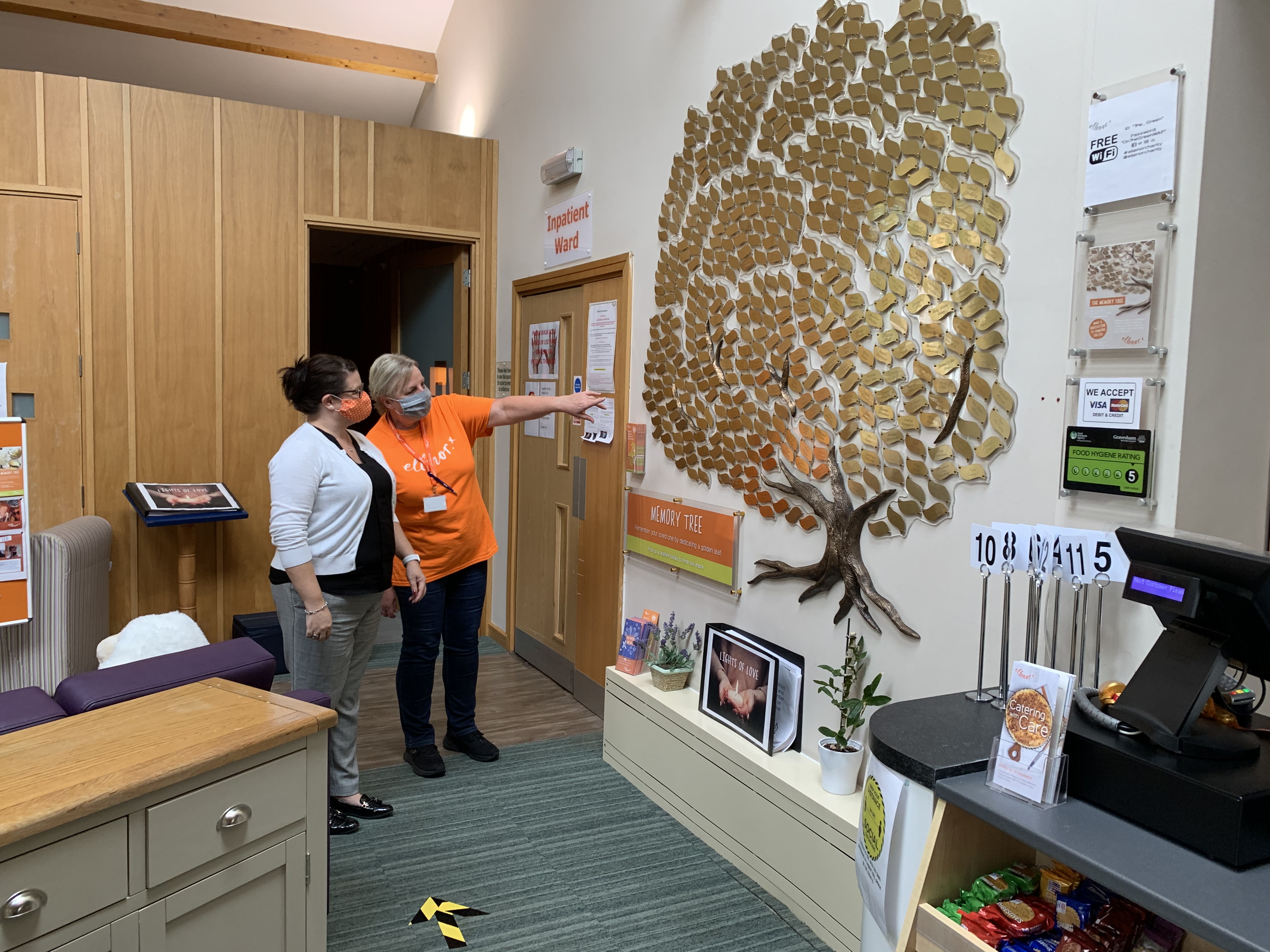Key to the success of ellenor, the charity offering support to those with life-limiting illnesses and their families, is the support of our volunteers. Their commitment, energy and enthusiasm are crucial in enabling us to carry out our work. So often, those who volunteer with us have their own connections that have brought them to the charity – and they will often say, too, that they feel they gain as much from their work with us as they give. Here, Suzanne Wood tells her story.
“My husband Chris died in April 2019 under ellenor’s care, having been suffering from a brain tumour. It was a terrible time but the support we got from the nursing team was like having a comfort blanket thrown round you – that really is how it felt. After Chris’s death, I belonged to the Walk and Talk bereavement group that ellenor runs, and the support there was also really helpful – you meet others in the same position, so you all really understand one another and what we’re all going through. I’ve made some real friends through the group.
"I worked in healthcare for over 30 years but stopped when Chris became ill. Now, I’m in a position where I can take things more slowly and do what works best for me at the moment."
I took a form about volunteering for ellenor at the end of last year - I had my eye on helping out with taking orders in the Coffee Shop – but I didn’t feel ready to start until February of this year. Great timing: I’d been coming in for a few mornings a week and then Covid struck. At that point, because of lock-down, only ellenor’s staff were accessing the coffee shop, meaning I was moved to the Host Desk. This is a new initiative for ellenor, I gather: previously, it was more like a receptionist role, where the front-desk person would answer the phones, too. Now, though, the role is solely about meeting-and-greeting.
I’m a “Host” at ellenor, one of the first people visitors to the hospice encounter, and on the practical side, the front doors no longer open automatically as a precaution against the spread of Covid, meaning I have to let everyone in. I describe myself as the hand-washing police: no one gets past me unless they’re well sanitised! I’ve got to grips with the post, too – deliveries come to me, and now I have a better idea where to direct it. I’ve certainly found out a great deal about who works where and what they do within ellenor in the past few months.








